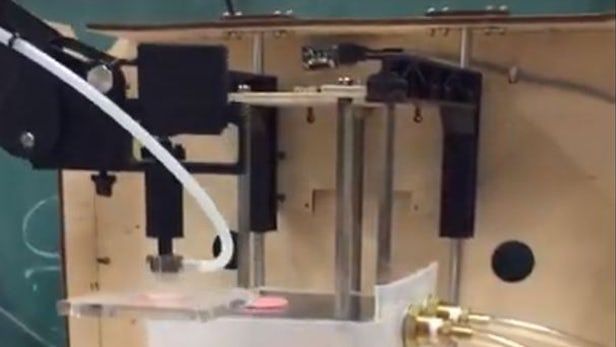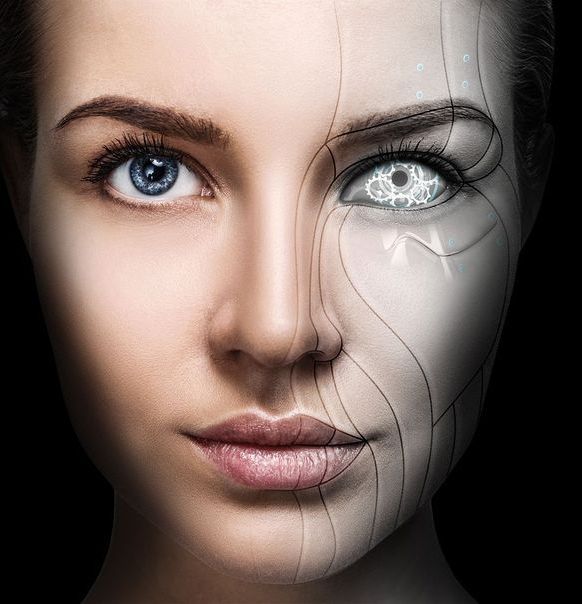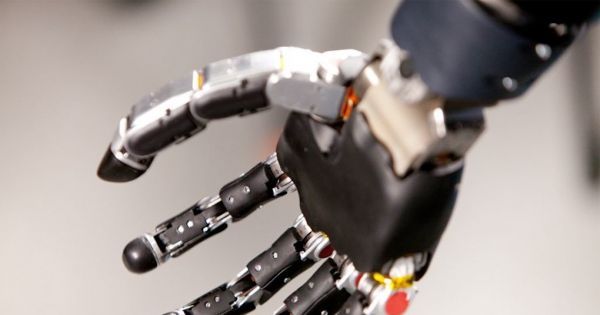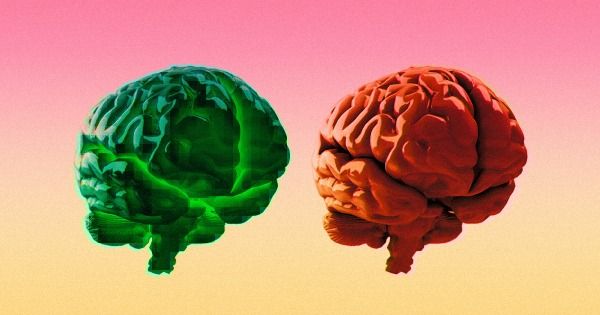Archive for the ‘robotics/AI’ category: Page 1786
Apr 24, 2019
Florida Man Becomes First Person to Live With Advanced Mind-Controlled Robotic Arm
Posted by Quinn Sena in categories: biotech/medical, cyborgs, Elon Musk, robotics/AI
Prosthetics have advanced drastically in recent years. The technology’s potential has even inspired many, like Elon Musk, to ask whether we may be living as “cyborgs” in the not-too-far future. For Johnny Matheny of Port Richey, Florida, that future is now. Matheny, who lost his arm to cancer in 2005, has recently become the first person to live with an advanced mind-controlled robotic arm. He received the arm in December and will be spending the next year testing it out.
The arm was developed by Johns Hopkins Applied Physics Lab as part of their program Revolutionizing Prosthetics. The aim of the program, which is funded by the Defense Advanced Research Projects Agency (DARPA), is to create prosthetics that are controlled by neural activity in the brain to restore motor function to where it feels entirely natural. The program is specifically working on prosthetics for upper-arm amputee patients. While this particular arm has been demoed before, Matheny will be the first person to actually live with the prosthesis. The program does hope to have more patients take the tech for a longterm test run, though.
While the prosthetic device is impressive, it’s not a limitless, all-powerful robot arm. Matheney won’t be able to get the arm wet and is not allowed to drive while wearing it. Keeping a few rules in mind, Matheney will otherwise be free to push the tech to the edge of its capabilities, truly exploring what it can do.
Apr 24, 2019
A first in medical robotics: Autonomous navigation inside the body
Posted by Quinn Sena in categories: bioengineering, biotech/medical, robotics/AI
Bioengineers at Boston Children’s Hospital report the first demonstration of a robot able to navigate autonomously inside the body. In an animal model of cardiac valve repair, the team programmed a robotic catheter to find its way along the walls of a beating, blood-filled heart to a leaky valve—without a surgeon’s guidance. They report their work today in Science Robotics.
Surgeons have used robots operated by joysticks for more than a decade, and teams have shown that tiny robots can be steered through the body by external forces such as magnetism. However, senior investigator Pierre Dupont, Ph.D., chief of Pediatric Cardiac Bioengineering at Boston Children’s, says that to his knowledge, this is the first report of the equivalent of a self-driving car navigating to a desired destination inside the body.
Dupont envisions autonomous robots assisting surgeons in complex operations, reducing fatigue and freeing surgeons to focus on the most difficult maneuvers, improving outcomes.
Continue reading “A first in medical robotics: Autonomous navigation inside the body” »
Apr 24, 2019
Researchers use machine-learning system to diagnose genetic diseases
Posted by Quinn Sena in categories: biotech/medical, genetics, robotics/AI
Researchers at Rady Children’s Institute for Genomic Medicine (RCIGM) have utilized a machine-learning process and clinical natural language processing (CNLP) to diagnose rare genetic diseases in record time. This new method is speeding answers to physicians caring for infants in intensive care and opening the door to increased use of genome sequencing as a first-line diagnostic test for babies with cryptic conditions.
“Some people call this artificial intelligence, we call it augmented intelligence,” said Stephen Kingsmore, MD, DSc, President and CEO of RCIGM. “Patient care will always begin and end with the doctor. By harnessing the power of technology, we can quickly and accurately determine the root cause of genetic diseases. We rapidly provide this critical information to intensive care physicians so they can focus on personalizing care for babies who are struggling to survive.”
A new study documenting the process was published today in the journal Science Translational Medicine. The workflow and research were led by the RCIGM team in collaboration with leading technology and data-science developers —Alexion, Clinithink, Diploid, Fabric Genomics and Illumina.
Continue reading “Researchers use machine-learning system to diagnose genetic diseases” »
Apr 24, 2019
Artificial Intelligence Can Detect PTSD in Your Voice
Posted by Quinn Sena in categories: biotech/medical, information science, mobile phones, robotics/AI
For years, post traumatic stress disorder (PTSD) has been one of the most challenging disorders to diagnose. Traditional methods, like one-on-one clinical interviews, can be inaccurate due to the clinician’s subjectivity, or if the patient is holding back their symptoms.
Now, researchers at New York University say they’ve taken the guesswork out of diagnosing PTSD in veterans by using artificial intelligence to objectively detect PTSD by listening to the sound of someone’s voice. Their research, conducted alongside SRI International — the research institute responsible for bringing Siri to iPhones— was published Monday in the journal Depression and Anxiety.
According to The New York Times, SRI and NYU spent five years developing a voice analysis program that understands human speech, but also can detect PTSD signifiers and emotions. As the NYT reports, this is the same process that teaches automated customer service programs how to deal with angry callers: By listening for minor variables and auditory markers that would be imperceptible to the human ear, the researchers say the algorithm can diagnose PTSD with 89% accuracy.
Continue reading “Artificial Intelligence Can Detect PTSD in Your Voice” »
Apr 24, 2019
Forget about artificial intelligence, extended intelligence is the future
Posted by Genevieve Klien in categories: robotics/AI, singularity
Apr 23, 2019
NASA’s “Hive” Drones Can Deploy Swarms of Tiny Robot Cicadas
Posted by Genevieve Klien in categories: drones, robotics/AI
Apr 23, 2019
2D stacking method could make 3D-printed organs viable
Posted by Quinn Sena in categories: 3D printing, bioprinting, biotech/medical, robotics/AI

In an effort to scale up the manufacture of biomaterials, researchers at UC Berkeley have combined bioprinting, a robotic arm, and flash freezing in a method that may one day allow living tissue, and even whole organs, to be printed on demand. By printing cells into 2D sheets and then freezing them as assembled, the new technique improves cell survival during both building and storage.
Apr 23, 2019
New way to ‘see’ objects accelerates future of self-driving cars
Posted by Quinn Sena in categories: robotics/AI, transportation
The laser sensors currently used to detect 3D objects in the paths of autonomous cars are bulky, ugly, expensive, energy-inefficient – and highly accurate.
These Light Detection and Ranging (LiDAR) sensors are affixed to cars’ roofs, where they increase wind drag, a particular disadvantage for electric cars. They can add around $10,000 to a car’s cost. But despite their drawbacks, most experts have considered LiDAR sensors the only plausible way for self-driving vehicles to safely perceive pedestrians, cars and other hazards on the road.
Now, Cornell researchers have discovered that a simpler method, using two inexpensive cameras on either side of the windshield, can detect objects with nearly LiDAR’s accuracy and at a fraction of the cost. The researchers found that analyzing the captured images from a bird’s-eye view rather than the more traditional frontal view more than tripled their accuracy, making stereo camera a viable and low-cost alternative to LiDAR.
Continue reading “New way to ‘see’ objects accelerates future of self-driving cars” »
Apr 23, 2019
Elon Musk: Brain-Computer Interface Update “Coming Soon”
Posted by Quinn Sena in categories: education, Elon Musk, life extension, robotics/AI
AI Overlords
Musk has repeatedly warned of evil AI overlords in the past, saying that AI could become “an immortal dictator from which we could never escape” in a 2018 documentary called “Do You Trust This Computer?”
Most of what Neuralink is working on, including any plans for a brain computer interface, are still tightly under wraps. In one tantalizing clue, Bloomberg recently reported on a still unpublished academic paper by five authors who have been employed by or associated with Neuralink — though it’s unclear whether Musk’s tweet referred to their work.
Continue reading “Elon Musk: Brain-Computer Interface Update ‘Coming Soon’” »

















